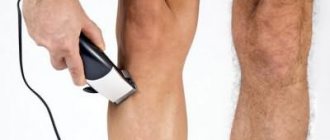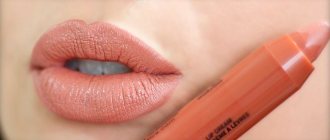Quite often, especially in the summer, the question is asked: “I’m sweating a lot, which doctor should I see?” Constantly wet armpits and other parts of the body, sweat stains on clothes, and an unpleasant odor cause a lot of inconvenience not only to the person himself, but also to those around him. This problem is quite common, but many are embarrassed to raise such topics.
In this article we will talk about hyperhidrosis and tell you which specialist will help you cope with excessive sweating. After all, it happens that this is not only an aesthetic problem, but also one of the symptoms of some serious diseases, including tuberculosis, hepatitis, disruption of the endocrine system, cardiovascular problems and even malignant neoplasms. In any case, even if hyperhidrosis is a feature of your body, consulting a doctor is necessary.
Meet hyperhidrosis
The term hyperhidrosis in medicine refers to increased secretion of sweat glands. The disease is divided into two types:
- Diffuse, when sweat appears on the entire surface of the skin.
- Local – individual areas of the body are moisturized.
The local form of the disease is more common, which may indicate the following pathogenic disorders occurring in the body:
- infectious diseases;
- disruptions in the functioning of the endocrine system;
- thyroid dysfunction;
- diseases of the cardiovascular system;
- genetic abnormalities;
- proliferation of formations, both malignant and benign.
Diagnosis of the root cause of the development of hyperhidrosis is very important, since if the underlying disease is not treated in a timely manner, complications may develop, which will lead to irreversible consequences. Therefore, it is simply necessary to know which doctor to contact with the problem of increased sweating.
We should not forget that excessive sweating can be primary, in other words, it can be a physiological feature of an individual. This form of “increased moisture” does not require medical intervention; simple preventive actions will be sufficient.
Which doctor treats hyperhidrosis?
There is no doctor whose main specialty is the treatment of hyperhidrosis. From a scientific point of view, there is a problem with excessive sweating, but it is impossible to find a doctor who will directly treat this problem. Based on this, the question arises - if hyperhidrosis is present, which doctor treats such a disorder of the sweat glands? It is quite difficult to answer, since before starting therapy it is necessary to exclude factors that can provoke excessive sweating, namely:
- hot weather;
- intense emotional stress;
- increased physical activity;
- spicy food.
Having ruled them out, you need to find out what disruption in the body’s functioning led to hyperhidrosis, that is, find the cause. And only then contact a specific specialist who will help eliminate it. Usually you have to undergo a full examination.
Treatment: what to do if you sweat?
If the causes of increased sweating are associated with a disease, then you can get rid of the problem only by curing the underlying disease. Depending on the disease, antibiotics and hormonal drugs are used, drugs and alcohol are excluded, surgery is used to remove tumors, and sedatives are prescribed. Treatment is prescribed by a doctor, whose specialty depends on the nature of the disease. Self-medication is prohibited.
If excessive sweating has non-pathological causes, then simple recommendations can help. In hot weather, you should wear loose clothing and light shoes made from natural materials. Using deodorants and antiperspirants helps prevent sweating underarms. To prevent your feet from sweating, you can take baths with boric acid or apply it as a powder. As a treatment, you can wipe other problem areas with a boric acid solution. For increased sweating, herbal tea with mint, lemon balm, chamomile or sage will help.
“I’m sweating a lot, which doctor should I see?” – choosing the right doctor
Dilemma: hyperhidrosis – which doctor should I go to? Excessive sweating can be caused by many reasons related to hemodynamic disturbances in the human body, so you need to know a doctor who can cure the pathology by sight. Let's try to figure out which specialists can help with excessive sweating.
The first doctor who will help you get rid of the problem of hyperhidrosis is a therapist. He will prescribe tests and help determine which system or organ in the body has “failed.” Afterwards, he will write out a referral to the right specialist who will deal with the treatment.
Endocrinologist
The first on the list of specialists with a narrower profile is an endocrinologist. Since in most diseases associated with high humidity, the “culprits” are disorders of the thyroid gland, diabetes mellitus, and hormonal imbalance. Diagnosis is carried out using thermography, ultrasound, puncture, and MRI.
Cardiologist
The presence of certain cardiovascular diseases can lead to sweating. You should go to this specialist if hyperhidrosis is accompanied by heart pain, shortness of breath, and rhythm disturbances. The diagnosis of cardiac pathologies is confirmed by conducting studies such as a blood test for autoimmune markers, ECG, angiography.
Psychotherapist
Stress is one of the causes of sweating. On a nervous basis, the body’s natural reaction is to moisturize the skin based on the root of the problem; the following doctors can deal with therapy: a psychologist, a psychiatrist or a psychotherapist. The main treatment is taking sedatives.
Neurologist
This specialist is also looking for a connection between abnormal sweating and diseases of the nervous system. Hyperhidrosis can be caused by stroke, Parkinson's disease, or tabes dorsalis.
Physiatrist
This is a doctor who treats tuberculosis in any of its manifestations. With this disease, one of the symptoms is sweating, which appears in stages 1 and 2 of the disease.
Infectious disease specialist
A fairly large range of infectious diseases is expressed in the form of hyperhidrosis. This doctor will help you get rid of excessive sweating if you have the following diseases: acute respiratory viral infections, influenza fever, malaria, brucellosis, hepatitis, etc. Infectious pathologies can be diagnosed using a smear or microflora culture, biochemistry, serology, and laboratory blood tests.
Expert in narcology
This doctor should be visited if sweating syndrome appears after abruptly quitting alcohol or drugs. Since the body stops receiving substances that cause euphoria, such conditions are often accompanied by psycho-emotional instability.
Toxicologist
Sweating may indicate intoxication of the body. The cause may be radiation, food or chemical poisoning. Based on the nature of intoxication, the doctor will prescribe appropriate medications to cleanse the blood and stomach.
Dermatologist
Since sweat is secreted through the skin, it would be a good idea to visit a dermatologist. If the treatment of the underlying disease is not within his competence, then he will help in eliminating the manifestations of moisture on the skin.
Oncologist
Tumor processes at the beginning of their development are usually asymptomatic, but are often accompanied by increased sweating. In addition to hyperhidrosis, there is also enlargement of the lymph nodes; it is better to consult an oncologist.
Rheumatologist
If you have problems with your joints, then sweating can become your constant companion. The “root cause” of the appearance of such a disease may be an infectious disease. Along with unpleasant humidity, a person experiences an increase in body temperature.
Urologist
If, in addition to hyperhidrosis, pain is observed in the lumbar region and the color of the urine changes, then a consultation with a urologist is necessary. Sometimes such a symptom indicates the presence of syphilis in the body, which a venereologist will help to cope with.
If all the specialists listed above “did not recognize” you as their patient, then the problem of increased sweating lies in the characteristics of your body. And you need to choose the right means of protection for you.
Factors leading to sudden sweating attacks
It is quite common for people to worry about feeling hot and sweating. Of course, the appearance of these pathological symptoms is not a disease, but if they bother a person often and over a long period of time, this situation should be alarming.
The causes of increased sweating can be different, namely such pathological conditions and diseases as:
- VSD;
- changes in hormonal levels;
- increased blood pressure;
- neuroendocrine disorder;
- cerebral hemorrhage;
- myocardial infarction;
- disturbance of the emotional background;
- bearing a child;
- malignant neoplasms.
If the functioning of the central nervous system is disrupted, the patient may feel hot and sweaty for no apparent reason, even in the absence of stress, illness and exposure to high environmental temperatures.
The onset of menopause occurs when a woman reaches 40 or 45 years of age. It is this physiological process that is accompanied by hormonal imbalances. It leads to the appearance of sudden, extremely profuse sweating, hot flashes, pathological sensation of heat, increased body temperature, and hyperemia of the skin of the face. These listed symptoms begin to bother women about two years before the suppression and gradual extinction of the function of procreation (they can bother women for several years).
A characteristic feature of the menopause is considered to be a lack of estrogen, which leads to the sudden release of large amounts of sweat and a feeling of heat, which turns into chills after a few minutes.
The restructuring of hormonal levels is accompanied by disorders of thermoregulatory processes, as a result of which the brain sends false impulses to the human body about cold or warmth. As a result of these changes, a pathological feeling of heat and bouts of sweating appear. As a result of sudden overheating, the human body tries to save itself by producing and secreting sweat.
During the period of bearing a child, a significant number of women complain of fever, unmotivated sweating and rapid heartbeat. These manifestations are due to the fact that changes in the amount of a hormone such as estrogen occur in the pregnant woman’s body.
Quite often, attacks of excessive sweating can accompany a person if there is a genetic predisposition, especially if the parents had manifestations of a disease called hyperhidrosis. It is characterized by excess sweat production, especially under high temperature conditions. Emotional stress can also lead to the appearance of this pathological symptom.
In rare cases, symptoms may be present as the body ages.
To reduce the intensity of excessive sweating, in these cases it is necessary to try to eat a full and balanced diet, strengthen the body and lead an active lifestyle; the diet should include a large amount of vitamins.
What symptoms should you see a doctor for?
The main symptom that should make you think about going to the hospital should be sweat, which appears inexplicably, spontaneously, causing the whole body or certain parts of it to become wet. Also alarming symptoms include:
- unpleasant smell of sweat;
- the consistency of the secretion is very thick or too liquid;
- seals appear in places of sweating;
- sweat has an unnatural color.
The disease itself, hyperhidrosis, does not pose a serious threat unless it is a symptom of a more “terrible” disease. Sweat causes more discomfort and psychological instability, since most people who are predisposed to spontaneous sweating try to avoid society, which causes depression, nervous breakdowns, and stress.
If we talk about the treatment of hyperhidrosis, a conservative approach in the form of medications is usually used. These can be sedatives for stress, depression, or topical drugs that block sweating. You can also apply cosmetic procedures and preventive measures. It is necessary to monitor your diet, hygiene, and avoid nervous-emotional situations. Choose the right doctor and say goodbye to hyperhidrosis forever.
Share the article on social media. networks:








